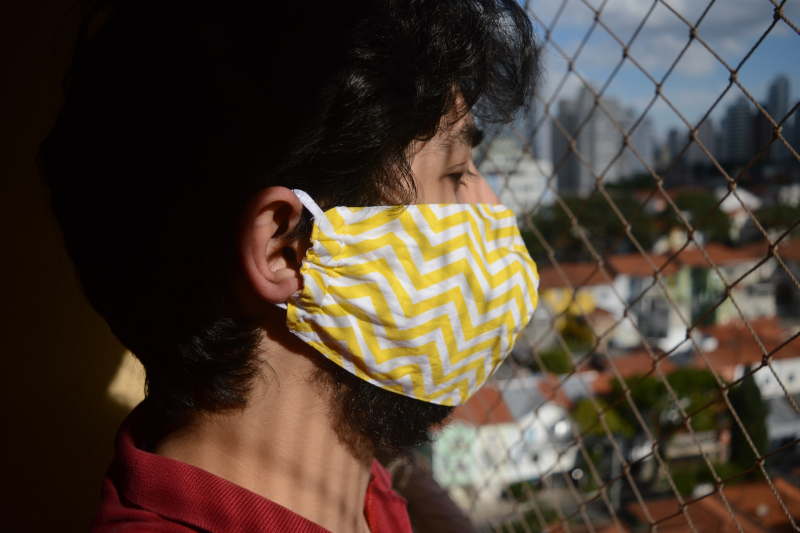- Gillian Bouras
- 28 July 2020
I’m a Twitter tragic, even though the Puritan in my soul deplores the frequency of bad language, and the pedant is struck by the number of mistakes in spelling and usage. But every so often I am brought up short by more serious matters. The tweet I have just read in the heat of the Greek afternoon was written by a man near wintry Melbourne who feels threatened by governmental instructions to wear face masks. He targets Premier Daniel Andrews, and declares he will neither wear a mask, nor pay a fine. He will not comply or ‘bow down’ to Dictator Dan. He was, he says ‘born free.’

During times of crisis concepts such as power and liberty are often brought into the light and re-examined, and it is a sad fact that during those same times, people in power often try to chip away at liberty, at democracy’s most basic freedoms: several current world leaders immediately spring to mind. The man who was ‘born free’ might ask himself exactly why Australia’s Parliament has been shut down. Again.
Lockdown has given us all a good chance to reflect and revaluate, perhaps even to think about what we have learned during decades, and as a result of life’s experience. Many of us have read and re-read a great deal, while still others have revisited influential people of the past. One person with whom I have renewed a slight acquaintance is the fascinating and complex Lord Acton (1834-1902), historian, writer, politician and formidable linguist.
On one level Acton was a pillar of the English establishment, a member of the British aristocracy, and a close friend and adviser of Gladstone. On another he had a very cosmopolitan background: born in Naples to a mother of ancient French-German lineage, he married a Bavarian aristocrat and eventually, because of the convolutions of his European connections, became an Italian Marquis. He was also raised a Catholic at a time when Catholic emancipation had only recently taken place, and was denied entrance to the University of Cambridge because of lingering prejudice. But in a much later and satisfying irony, Cambridge appointed him Regius Professor of Modern History.
Acton was a deeply learned man who influenced many people, and still does; he is perhaps best known for his view, expressed in a letter to the Anglican Bishop of London, that ‘Power tends to corrupt; absolute power corrupts absolutely.’ Once again, certain world leaders spring to mind. Acton went on to suggest that ‘great men are nearly always bad men,’ and contended that the greatest names are often coupled with the greatest crimes.
History abounds with examples: one of the most significant being that of Robespierre, who fairly early in his career coined the famous phrase of the French Revolution: liberte, egalite, fraternite, but later became the architect of the Great Terror, which saw 17000 people guillotined in the space of a year, and who himself was guillotined.
'Acton... had serious thoughts about the nature of liberty, a much misunderstood concept. "Liberty," he said, "is not the power of doing what we like, but the right of being able to do what we ought."'
In fiction we have the example of American Robert Penn Warren’s novel All the King’s Men. The protagonist Willie Stark is based on the long-ago Governor of Louisiana, Huey Long. Willie Stark begins his political career as an idealistic fighter against corruption, but ends it as a seriously compromised and corrupt figure: Penn Warren shows how insidious the process is.
But the corrupting nature of power was not Acton’s only concern: he also had serious thoughts about the nature of liberty, a much misunderstood concept. ‘Liberty,’ he said, ‘is not the power of doing what we like, but the right of being able to do what we ought.’ The conclusion of this argument would seem to be that sometimes certain freedoms have to be sacrificed for the sake of the greater good.
Many great minds, of course, have engaged with the subject of liberty. John Stuart Mill, for example, argued that the liberty of the individual must be limited: ‘he must not make himself a nuisance to other people.’
The refusal to wear a mask in the present circumstances could be considered not only a nuisance to other people, but a positive danger to them. Perhaps the Melbourne rebel should re-read Rousseau: ‘Man is born free, but is everywhere in chains.’ That’s just the way it is, especially in times of crisis.

No comments:
Post a Comment